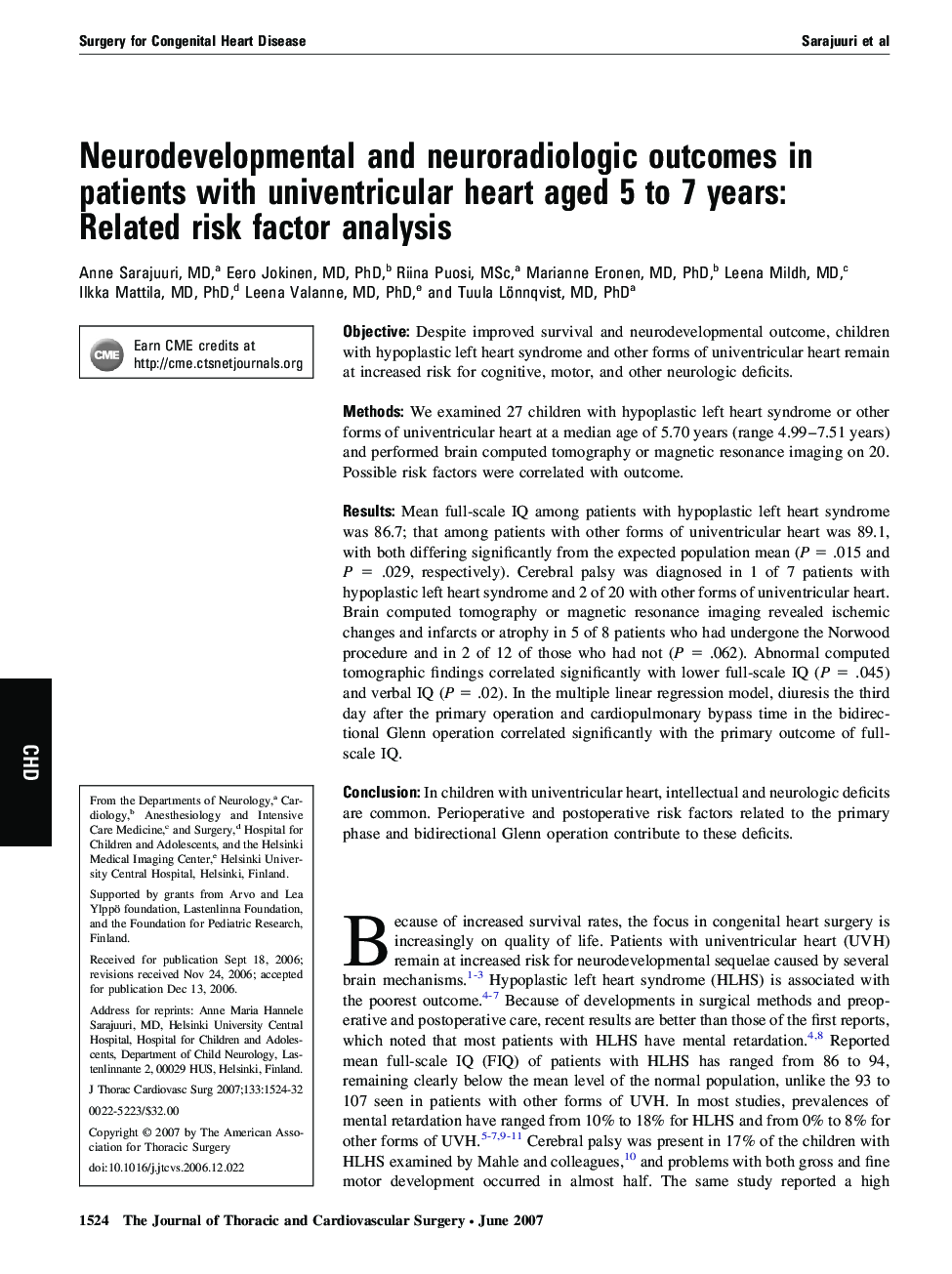| Article ID | Journal | Published Year | Pages | File Type |
|---|---|---|---|---|
| 2983838 | The Journal of Thoracic and Cardiovascular Surgery | 2007 | 9 Pages |
ObjectiveDespite improved survival and neurodevelopmental outcome, children with hypoplastic left heart syndrome and other forms of univentricular heart remain at increased risk for cognitive, motor, and other neurologic deficits.MethodsWe examined 27 children with hypoplastic left heart syndrome or other forms of univentricular heart at a median age of 5.70 years (range 4.99–7.51 years) and performed brain computed tomography or magnetic resonance imaging on 20. Possible risk factors were correlated with outcome.ResultsMean full-scale IQ among patients with hypoplastic left heart syndrome was 86.7; that among patients with other forms of univentricular heart was 89.1, with both differing significantly from the expected population mean (P = .015 and P = .029, respectively). Cerebral palsy was diagnosed in 1 of 7 patients with hypoplastic left heart syndrome and 2 of 20 with other forms of univentricular heart. Brain computed tomography or magnetic resonance imaging revealed ischemic changes and infarcts or atrophy in 5 of 8 patients who had undergone the Norwood procedure and in 2 of 12 of those who had not (P = .062). Abnormal computed tomographic findings correlated significantly with lower full-scale IQ (P = .045) and verbal IQ (P = .02). In the multiple linear regression model, diuresis the third day after the primary operation and cardiopulmonary bypass time in the bidirectional Glenn operation correlated significantly with the primary outcome of full-scale IQ.ConclusionIn children with univentricular heart, intellectual and neurologic deficits are common. Perioperative and postoperative risk factors related to the primary phase and bidirectional Glenn operation contribute to these deficits.
